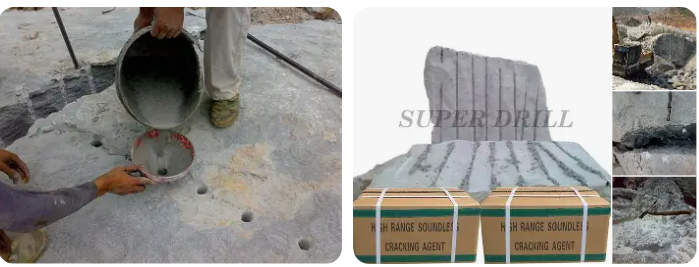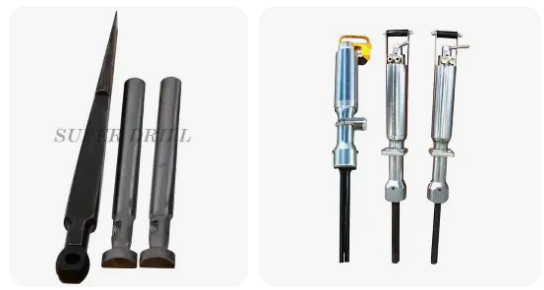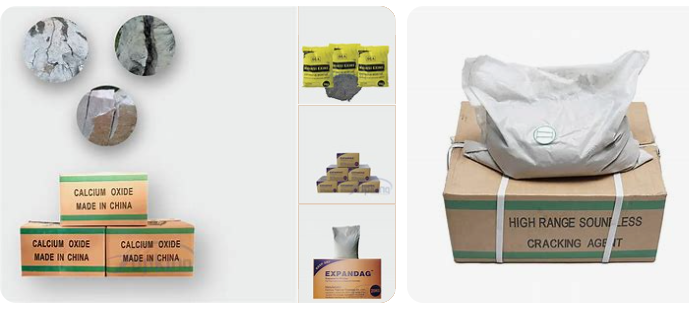When it comes to breaking hard concrete or natural rock without explosives, two of the most popular non-blasting solutions on the market are the darda c12 Hydraulic Rock Splitter and expansive mortar (also called cracking powder). But which one should you choose for your specific job?
Let’s explore the strengths, use cases, pros and cons of each method to help you make the best decision.
What is the Darda C12 Rock Splitter?
The Darda C12 is a hydraulic splitting tool that uses a wedge-and-counter-wedge system to apply controlled pressure inside pre-drilled holes, forcing the material to split apart. It is powered by a hydraulic pump and often used in quarrying, demolition, and tunneling.

Key Features:
Splitting force up to 400 tons
Requires 40–50 mm diameter holes (depth depends on model)
Operates quietly with no vibration or flying debris
High precision and immediate effect
Suitable for confined spaces
What is Expansive Mortar?
Expansive mortar, such as Dexpan, is a non-explosive chemical powder. When mixed with water and poured into pre-drilled holes, it slowly expands with enormous pressure (up to 12,000 PSI), cracking the rock or concrete silently over several hours.
Key Features:
Pressure builds over 6–24 hours
Hole diameter: typically 32–38 mm
Low cost and easy to use
Ideal for large areas or multiple holes
No need for hydraulic equipment or electricity

Darda C12 vs Expansive Mortar – A Detailed Comparison
| Feature | Darda C12 Rock Splitter | Expansive Mortar |
|---|---|---|
| Working Time | Immediate splitting (within seconds) | 6–24 hours for full cracking |
| Power Source | Requires hydraulic power pack | No power needed, just water |
| Drilling Hole Size | Larger (typically 40–50 mm) | Smaller (32–38 mm) |
| Operation Complexity | Requires trained operator and hydraulic tools | Easy to mix and apply |
| Noise & Vibration | Low noise, no vibration | Completely silent |
| Best For | Precise splitting in construction/demolition sites | Mass cracking in quarries or remote areas |
| Portability | Heavy, not ideal for hard-to-access sites | Lightweight and portable |
| Cost | High upfront investment | Low cost per job |

Which One Should You Choose?
Choose Darda C12 if:
You need fast, controlled and precise splitting
Your job is in an urban or indoor environment
You can afford the higher equipment cost
You have access to trained operators and hydraulic equipment
Choose Expansive Mortar if:
You prefer a cost-effective, low-tech solution
You're working in remote areas with no electricity
You have a large volume of rock/concrete to break
You want a silent, completely vibration-free method
Conclusion
Both the Darda C12 Rock Splitter and Expansive Mortar offer non-explosive, silent methods for breaking rock and concrete, but they serve different needs. If your priority is speed and precision, Darda is the clear winner. If your priority is cost and simplicity, expansive mortar is the ideal solution.
At SUPERDRILL, we supply both hydraulic splitters and high-performance expansive mortar to suit various rock-breaking scenarios. Whether you’re breaking a concrete foundation or splitting granite in the field, we’ve got the tools to make your job easier and safer.
 Mobile:
Mobile: E-mail:
E-mail:
